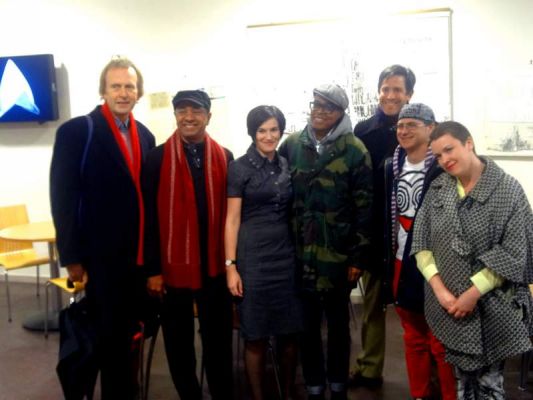KASHISH GOES TO EUROPE
The best of Indian queer short films on a five-city tour.
A package of Indian queer short films from KASHISH film festival travelled to five European cities between November-December 2012.


Sridhar Rangayan, festival director of KASHISH Mumbai International Queer Film Festival, was invited by Global QueeCinema to speak at a roundtable conference on ‘Curating Film Culture’ at the Brighton Film Festival, UK to talk about challenges and successes of using film festivals as a space for queer advocacy and community building. He was also invited by the ILGA World Conference in Stockholm to conduct a workshop on ‘Documenting LGBT Histories’, based on his ‘Project Bolo’.
“I felt it was a good opportunity to not only talk about my own film work, but also use this tour to plan other events to showcase contemporary Indian queer films. That’s how Queer India European Tour emerged, with many universities and organizations expressing interest in hosting special screenings and talks while I was there”, said Rangayan, “Usually short films, because of lack of resources, do not have possibility to be seen at several platforms across the world; so through this initiative, I try to find spaces for these films to be screened and initiate a dialogue on LGBT issues in India.”
The tour that travelled to Brighton, London, Dublin, Warsaw and Stockholm, included a screening at the iconic Old Cinema in London UK, which is the oldest theatre in Britain where Lumière Brothers showed their film in 1896. The event organized by the India Media Centre at the University of Westminster was intended to showcase contemporary Indian gay, lesbian, transgender themed films worldwide to raise awareness and promote discussions. Films from KASHISH like Amen, Kusum (The Flower Bud), Logging Out, Raat Baaki (Night is Young) were screened, alongwith Rangayan’s own film Gulabi Aaina (The Pink Mirror) and a trailer of Breaking Free, his documentary under production.
The near-houseful show on a rainy London wintry day was a testimony to the growing interest and appreciation of Indian queer cinema and culture.
The other stopovers of the tour were screenings at University of Sussex at Brighton, organized by GQC; at the University of Warsaw, organized by Parady Równości; at ILGA World Conference in Stockholm, and at Klubb Cinema Queer in Stockholm.
From a mere 10 people in a classroom to a hall full of 200 people, the screenings received a very good response. It was successful in raising discussions about LGBT lives and issues in contemporary India, using the medium of cinema.
“The audiences everywhere were very interested and engaged. It showed that films transcend cultures and language barriers. I have seen it with my own films over the past decade and I’m seeing it with the short films that we screened. Films transport you to a culture, to a space, where you immediately soak in that world and live a virtual reality. The connection is immediate and the experiences are emotional”, said Rangayan.
